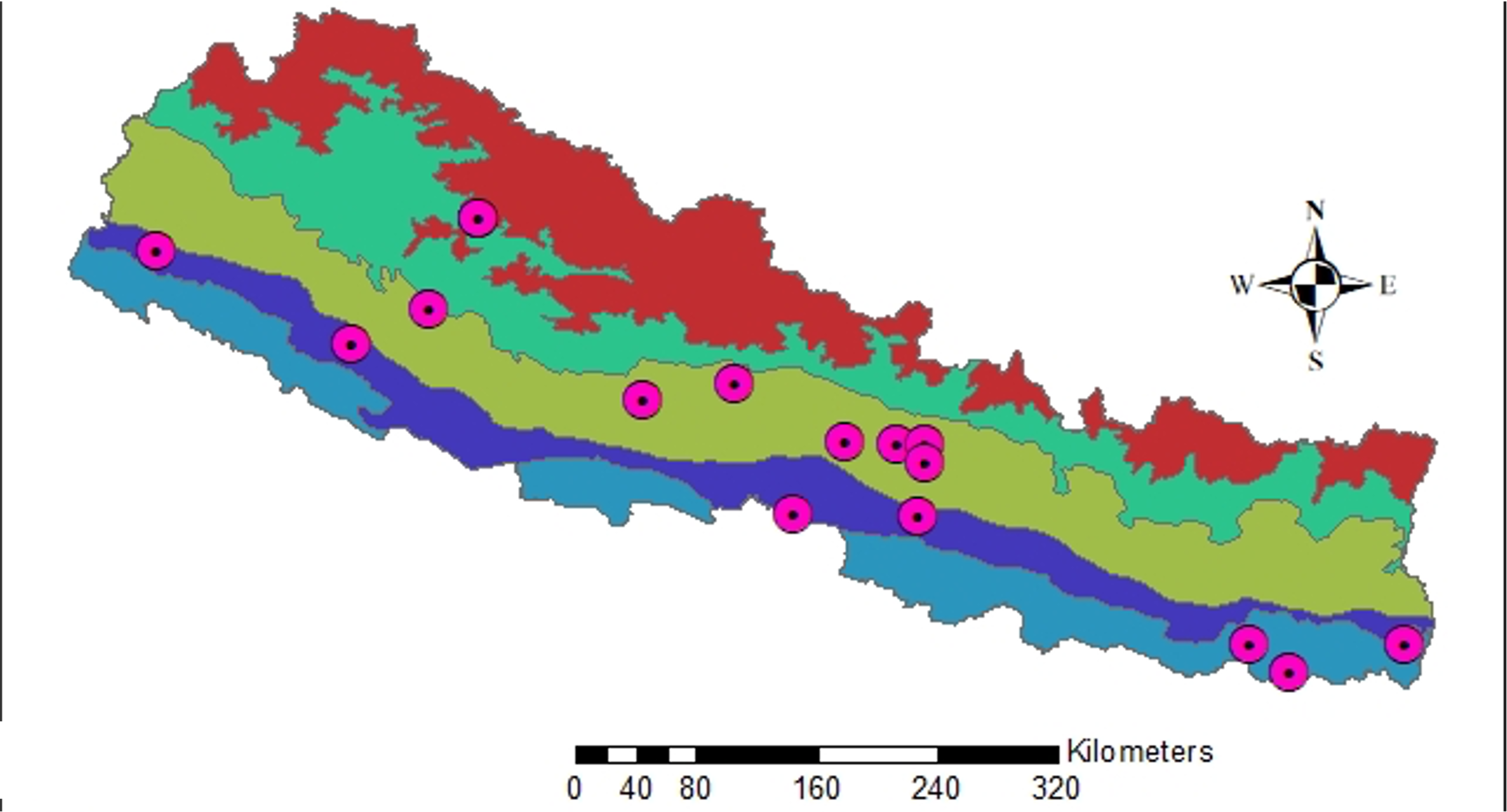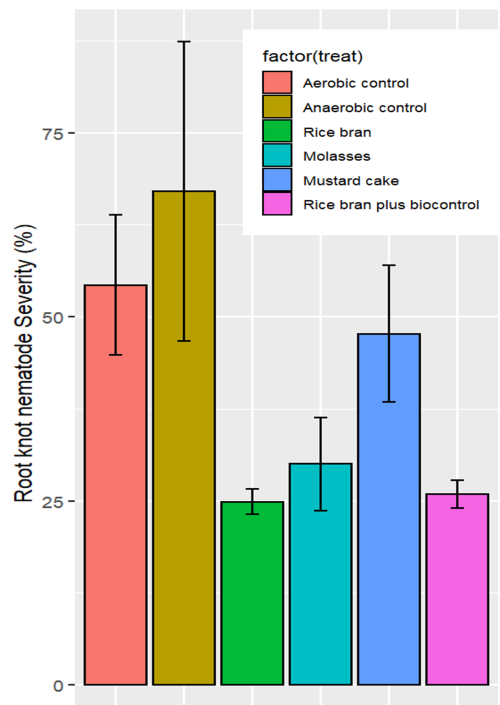
Improving soil health for increased yields, profitability and enhanced nutrition in Nepal and Bangladesh
Enhancing Smallholder Farmer Livelihoods and Food Security in Nepal
In Nepal, a lack of crop rotation has exacerbated soilborne diseases, leading to decreased farm profitability and discouraging younger generations from farming. The Feed the Future Innovation Lab for Horticulture-supported South Asia Regional Hub project, Mitigating soilborne diseases to improve smallholder farmer livelihoods and food security in Nepal, led by Dr. Ram B. Khadka and Dr. Ranjana Rawal, is addressing these issues through a multifaceted project including anaerobic soil disinfestation (ASD) trials and capacity strengthening of the farmers in the form of mother and baby trials.
Anaerobic Soil Disinfestation Trials
The project employs ASD combined with native biocontrol isolates and grafting technology. On-farm trials focus on tomatoes and peppers, aiming to suppress soilborne pathogens and weeds. Using a participatory action research (PAR) approach, the project will conduct eighteen mother-baby trials, assessing various factors such as disease suppression, yield, soil health improvement, and economic feasibility. The research sites are taken in close collaboration with and as recommended by the Government of Nepal implemented Prime Minister Agriculture Modernization Project (PMAMP) Vegetable Zone implementation.

Preliminary results show that ASD treatments, particularly those using rice bran and molasses, significantly reduced root knot nematode (RKN) severity indices in mother trials. This indicates that ASD could become a sustainable tool for RKN management in Nepal's vegetable production systems.
Training and Capacity Building
The project has also been instrumental in establishing a National Network of Vegetable Grafting Growers, encouraging small-scale producers to adopt vegetable grafting as a business. Two national-level training workshops, including a weeklong vegetable breeding course and a two-day vegetable grafting workshop, were organized. These events trained 315 growers, 45 researchers, extension workers, and academics, along with 31 lead small-scale farmers.
Participants were trained on various aspects of ASD and grafting techniques, with resources from international experts from the U.S., Canada, and World Vegetable Center based in Taiwan. The training emphasized the importance of "Global Knowledge to Local Audience," promoting the adoption of advanced agricultural practices.

Results and Impact
The project has introduced at least 30 multiple, stress-tolerant germplasms from the World Vegetable Center. It has also demonstrated significant reductions in RKN severity in farmers' fields using ASD treatments. About 300 farmers participated in 18 mother and 90 baby trials across the country, learning by doing in severely infested fields.
The project’s approach not only aims to enhance crop productivity but also improves soil health and sustainability. The trials' success has led to recommendations for follow-up training and trials to ensure continued impact and refinement of techniques.

Recommendations
To sustain the momentum, the project recommends:
- Organizing a weeklong vegetable grafting school in each province through identified focal farmers.
- Conducting annual refresher trainings on vegetable breeding, to track impacts and address challenges.
- Continuing follow-up trials in at least half of the mother trial locations to verify results.
These steps are crucial for the project's long-term success, aiming to improve smallholder farmers’ livelihoods and food security in Nepal.

Figure 2 depicts that the Anaerobic control as ASD has good response in mitigating soil borne diseases which is better with mustard cake or molasses followed by rice bran plus biocontrol and rice bran.
For background, visit the project page.
